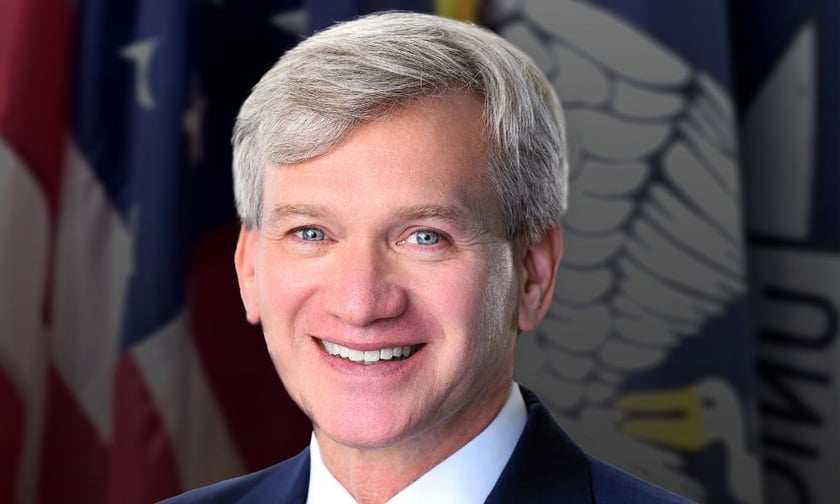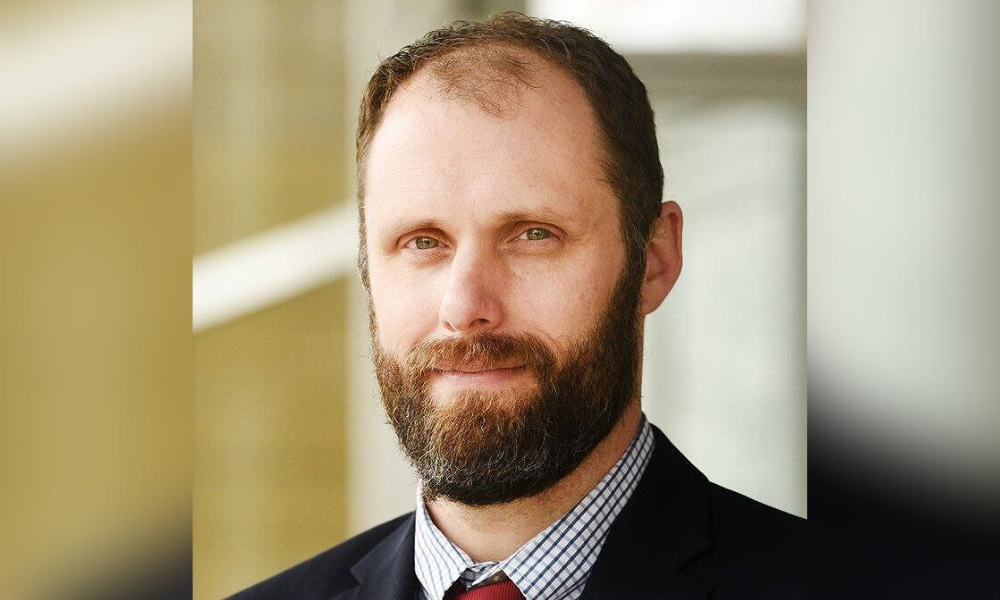

Louisiana Insurance Commissioner Tim Temple (pictured top) felt political winds blow at his back this week as he launched an effort to reform a market that has seen carriers disappear and costs soar in the wake of catastrophic weather over the last few years.
Gov. Jeff Landry opened the state’s legislative session on Monday by calling on lawmakers to work with Temple on a package of reforms.
“We are experiencing an insurance crisis as a result of years of back-to-back hurricanes which have decimated our southern coast,” Landry said in his speech. “These storms overwhelmed the insurance industry.”
Landry said lawsuits over claims are clogging state and federal courts. He noted that several carriers had left the state and those that remain have raised rates to cover losses. Many homeowners and businesses “cannot acquire insurance in the current environment,” he said.
“Our new insurance commissioner is working tirelessly to find solutions that make Louisiana an attractive market for more companies to write here,” Landry said. “Commissioner Temple believes, and I agree with him, that the de-regulatory measures he is undertaking will improve market conditions.”
Elected last year, much of Temple’s reform agenda will have to be approved by the legislature, whose session is scheduled to end in early June. He said there is momentum for that effort.
“I feel cautiously optimistic,” Temple, 54, said in an interview “It’s almost a sense of desperation when you talk to individuals and business owners. We’re focused. From the governor down, everybody acknowledges we’re in a crisis and that we’ve got to do something.”
The state experienced a record level of hurricane activity in 2020 and 2021. Insurers paid out more than $23 billion in more than 800,000 claims filed from those two years, according to the Insurance Information Institute. From July 2021 through February 2023, the state saw 12 insurers that write homeowners’ policies declare bankruptcy.
As the state struggles with the affordability and availability of insurance, Temple said he is addressing laws and regulations where Louisiana is “an outlier” on insurance oversight. He’s seeking to loosen regulations and give carriers more latitude to conduct business.
For instance, he wants to eliminate the so-called three-year rule that prohibits property insurers from dropping customers if the carrier has renewed the policy three times or more. The carrier must offer insurance to the customer for as long as the carrier operates in the state.
“That is certainly not free market in any way shape or form,” Temple said.
Louisiana is the only state that has a three-year rule, Temple said, and it inhibits insurers from doing business while also trapping capital.
“It makes us an outlier in a very negative way,” Temple said.
He’s trying to change Louisiana’s law that requires insurers to get prior approval for rate increases. Instead, he favors a file-and-use approach that would facilitate the introduction of new insurance products.
“I’m trying to help shape Louisiana into a state from a regulatory framework that companies feel that they can pivot as market conditions dictate, whether that’s through various rate changes or policy form changes,” Temple said.
Temple is also seeking to reform rules pertaining to bad faith insurance claims, such as when the clock starts ticking to prove losses.
“I certainly want the consumer to be protected and get what they’re owed, but it shouldn’t be at the expense of getting something that you’re not,” Temple said. “We’ve got to make sure the law is very clear; the timelines are defined; everyone knows what the rules are. I want to make sure it’s a fair claims process.”
But a critic asserted that Temple’s agenda is misguided.

Ben Riggs (pictured immediately above), executive director of Real Reform Louisiana, a consumer advocacy group, said it would hurt consumers and “pad the pockets” of insurers rather than revitalize the Louisiana insurance market.
“I don’t think taking rights away from storm victims is going to make Louisiana more competitive,” Riggs said. “It’s just going to make it harder for policyholders and consumers to hold their insurers accountable.”
For instance, ending the three-year rule will ensure that people in areas where insurers end coverage will see their rates go up significantly, Riggs said.
The reforms Temple has proposed are “not going to lower the rates or make the product more available for consumers,” Riggs said. “It’s going to make the product more useless for consumers.”
Temple countered that he’s not softening consumer protections. Instead, he’s trying to make sure that customers can obtain property insurance policies.
“I’m trying to put the horse in front of the cart,” Temple said. “We have got to have a market that has an affordable product to buy on which they can file a claim.”
Attracting more insurers to Louisiana through regulatory reform will give customers more leverage, Temple said.
“The best consumer protection any of us can ever have is choice,” Temple said.
Temple doesn’t need legislative approval for every reform. For instance, after assuming office, he eliminated a so-called desk rule that had capped an insurer’s profit at 10% with a rate increase.
“The change was made to make Louisiana more competitive with other coastal states when it comes to attracting insurance and reinsurance companies deciding where they’d like to invest and do business,” John Ford, a spokesman for the Louisiana Department of Insurance, wrote in an email.
Riggs said the move gives a greenlight to insurers to bake in excessive profit margins.
“This is completely tone deaf and bad for homeowners who are being priced out of their homes and small business owners who are struggling to keep their doors open,” Riggs said.
There is one area where Temple and Riggs agree. They both support initiatives to strengthen houses and other buildings to withstand severe weather.
“I’m a big proponent of the fortified roof,” Temple said.
Temple took office in January after winning election last October when his opponent dropped out of the primary. He replaced Jim Donelon, who had served four terms as the state’s insurance commissioner since 2006. Donelon offered his own reform package last April but declined to run for a fifth term in 2023.
Temple worked in the insurance industry for more than 20 years. He was mostly recently president of Temptan, a family-owned investment management firm in Baton Rouge. He’s now on the political side of the insurance business, serving as one of seven Republican statewide office holders in Louisiana.
House and Senate leaders as well as rank-and-file lawmakers support insurance reforms, Temple said. Although Republicans control both chambers of the state legislature, insurance is more of a pervasive than partisan issue.
“Everybody is dealing with an insurance crisis – either directly or through their constitutents, and likely both,” Temple said. “So, they’re looking for solutions.”
Temple also proposes changing the rate and form-filing system. He wants the current prior approval requirement replaced with file-and-use, allowing insurance companies to file proposed rate changes and then start using them immediately.”
Former Insurance Commissioner Jim Donelon
